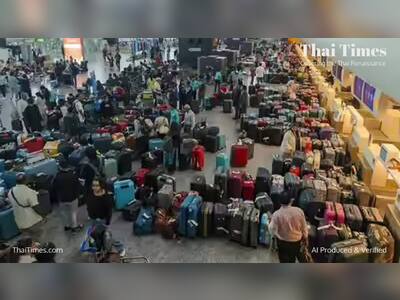King Power to Close Duty-Free Stores in Three Thai Airports Amid Economic Challenges
Thai duty-free retailer cites declining economy and increased rental fees as reasons for store closures at Phuket, Chiang Mai, and Hat Yai airports.
King Power, Thailand's leading duty-free retailer, has announced its intention to close stores at Phuket, Chiang Mai, and Hat Yai airports, citing a struggling economy and increased rental fees as primary factors.
This decision has had significant ramifications, leading to a 7.8% drop in shares of Airports of Thailand (AOT) on Friday.
AOT, the operator of six international airports in Thailand, confirmed that King Power submitted a memorandum requesting discussions to terminate its contracts for operating duty-free retail spaces at the aforementioned airports.
The request was made public following AOT's recognition of ongoing economic hardships that have impacted retail operations.
In its memo, King Power outlined the detrimental effects of the coronavirus pandemic, which has been exacerbated by global tensions such as the trade war between the United States and China, increased tariffs, and a notable decrease in arrivals of Chinese tourists, a key demographic for Thailand's tourism sector.
Additionally, King Power pointed to a rise in the revenue sharing rate, set by AOT, which increased to 127.30 baht per traveler.
The retailer specified seven unforeseen factors that have critically impeded its profitability, arguing that these developments have rendered AOT's fees untenable.
Among these factors were a deviation from the agreement terms due to a shift in government policy in 2024, duty reductions on wine, an absence of government initiatives to restore confidence among Chinese tourists, and an overall downturn in tourism.
Acknowledging its lack of confidence in sustaining operations at the three airports, King Power requested a resolution to its proposal within 45 days of submission.
Meanwhile, the company stated it would only remit 20% of its contractual fee based on sales.
Following the announcement, AOT's stock market value plummeted by 36 billion baht, marking a significant decline.
The operator's shares have halved in value since the beginning of the year, now positioned at the lowest valuation seen in a decade.
This decision has had significant ramifications, leading to a 7.8% drop in shares of Airports of Thailand (AOT) on Friday.
AOT, the operator of six international airports in Thailand, confirmed that King Power submitted a memorandum requesting discussions to terminate its contracts for operating duty-free retail spaces at the aforementioned airports.
The request was made public following AOT's recognition of ongoing economic hardships that have impacted retail operations.
In its memo, King Power outlined the detrimental effects of the coronavirus pandemic, which has been exacerbated by global tensions such as the trade war between the United States and China, increased tariffs, and a notable decrease in arrivals of Chinese tourists, a key demographic for Thailand's tourism sector.
Additionally, King Power pointed to a rise in the revenue sharing rate, set by AOT, which increased to 127.30 baht per traveler.
The retailer specified seven unforeseen factors that have critically impeded its profitability, arguing that these developments have rendered AOT's fees untenable.
Among these factors were a deviation from the agreement terms due to a shift in government policy in 2024, duty reductions on wine, an absence of government initiatives to restore confidence among Chinese tourists, and an overall downturn in tourism.
Acknowledging its lack of confidence in sustaining operations at the three airports, King Power requested a resolution to its proposal within 45 days of submission.
Meanwhile, the company stated it would only remit 20% of its contractual fee based on sales.
Following the announcement, AOT's stock market value plummeted by 36 billion baht, marking a significant decline.
The operator's shares have halved in value since the beginning of the year, now positioned at the lowest valuation seen in a decade.











